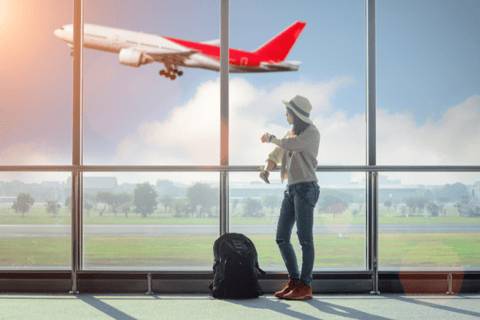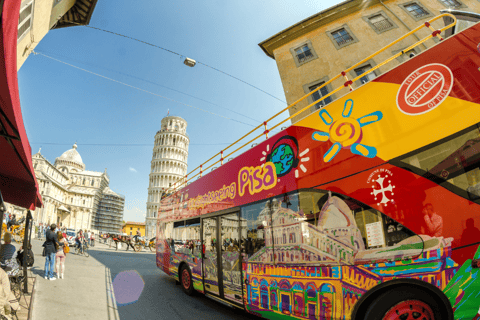Breathe Easy: The Ultimate Guide to Stress-Free Travel Planning
Discover the secrets to stress-free travel planning with our ultimate guide. Learn how to plan a trip without stress and make your dream vacation a reality.
Amanda Taylor
8/9/20248 min read
Ever felt like your well-planned trips don't go as expected? You're not the only one. Many people spend up to 40 hours planning a two-week vacation. But, their plans often change on the go. This guide will show you how to plan travel without stress.
Planning a trip doesn't have to be hard. With the right steps, you can make a plan that's flexible. This way, you can enjoy unexpected adventures and still see the main sights. We'll talk about picking your dream spot and getting around once you're there.
Are you ready for a trip where your plans and surprises mix perfectly? Let's start exploring stress-free travel planning. We'll show you how to make the ideal trip that leaves room for the unexpected.
Why Planning Your Trip Matters
Planning your trip is crucial for a smooth journey. It's more than just booking flights and hotels. It helps reduce stress and keeps you safe by doing your homework ahead of time. People spend over 10 hours planning a trip, but quickly lose interest after 42 minutes.
Planning early can save you money. Last-minute bookings mean higher prices and fewer choices. By planning ahead, you can dodge these issues and relax more during your trip.
"Not planning more than a few days in advance allowed for flexibility to stay longer in places unexpectedly found enjoyable or to leave locations that were not as appealing."
It's key to be organized, but don't overdo it. Too much planning can take away from the fun and surprise of traveling. Leave some room for spontaneity in your plans. This way, you might find hidden spots or meet new friends.
The aim of planning is to make your trip better, not to stick to a strict schedule. Finding the right balance lets you enjoy planning while still being open to adventure.


Determining Your Trip Duration
Planning your trip's length is key to a great vacation. It depends on your work, budget, and what you like. Most travelers feel less stressed when they plan ahead.
Think about how long you should stay at your destination. Some places can be seen in a weekend, while others take weeks. Look at sample itineraries to see what time you'll need. This way, you won't miss out on the best parts.
But, don't overplan. Having a loose plan lets you find new things and enjoy your trip more. It's important to see the main sights and book ahead. But, also leave time to relax and explore. This way, your trip will be fun and memorable.
"The best journeys answer questions that in the beginning you didn't even think to ask." - Jeff Johnson
Think about these things when planning your trip. You'll make a plan that fits you and makes you happy. Good travel planning means you'll come back feeling great, not tired from rushing.
Choosing the Perfect Travel Season
Choosing the best time to travel can greatly impact your trip. It affects your budget, the number of people around, and your overall experience. If you can pick your travel dates, look into the best seasons for your destination. This often means better deals and fewer people around.
Traveling during the off-season is usually the cheapest option. You'll find cheaper flights and places to stay. Plus, you won't have to deal with the crowds you see during busy times. If off-season doesn't work for you, think about shoulder season. This is the time between off-season and peak season. It has good weather and prices that aren't too high.
If you have a set schedule, like school breaks, find places with off-seasons during those times. This way, you can save money and still visit places you've always wanted to see. Planning early usually gets you better deals than booking at the last minute.
"The best time to travel is when you can fully immerse yourself in the destination without breaking the bank."
Choosing the right travel season sets you up for a fun and affordable trip. Whether you go for off-season or shoulder season, getting the timing right makes your trip memorable.
Selecting Your Dream Destination
Choosing a travel destination can be thrilling yet overwhelming. With so many options, it's key to focus on what matters most. Think about mixing adventure trips with relaxing getaways to keep things interesting. Your budget is a big part of deciding where to go, so make sure to plan with it in mind.
There are many ways to get inspired for your next trip. Look to entertainment, photography, and social media for ideas. Books and articles about travel can also lead you to new places you've never thought of before. Just make sure the place fits your time and interests.
"The world is a book, and those who do not travel read only one page." - Saint Augustine
When planning your dream trip, think about how much time you have and how long you'll be away. Short trips work well for places close by, while longer vacations let you explore farther away. Do your homework on potential destinations by checking out travel blogs, food blogs, and design blogs. This will give you a good sense of the local culture and what to see.
By considering these things and getting inspiration from different sources, you'll be ready to pick the perfect spot for your next big adventure.


Booking Flights: Tips and Tricks
Finding cheap flights can be tough, but smart strategies can help. Use travel search engines like Skyscanner to compare prices across airlines. These tools help you find the best deals on price, layovers, and arrival times.
When booking flights, timing is everything. For domestic trips, book 21 to 115 days early for the best prices. For international flights, book even earlier to get good deals. Remember, prices change based on the day of the week. Flying on a Tuesday or Wednesday can save you nearly $100 for domestic U.S. flights.
Being flexible can lead to cheaper flights. Try changing your travel dates or destination for better deals. For instance, in 2015, Groupon Getaway offered a 5-day trip to Iceland for a group of four for just $5,000.
"Booking your first flight can be a commitment to your trip, helping to overcome initial planning anxiety."
Over 500 airlines are tracked by FareCompare for ticket price analysis. This gives travelers a lot of data to make informed choices. By using these strategies and travel search engines, you can find cheap flights and start your journey well.
Finding the Perfect Accommodation
Choosing the right place to stay is key to a great trip. Most travelers spend about 30% of their budget on where they stay. So, it's important to find the best hotel tips for a worry-free vacation. Start by looking at different places that fit your budget and needs.
Think about location, what the place offers, and what others say about it. A hotel in a good spot can cut down on travel costs. Look for hotels close to sights or public transport. Make sure they have free Wi-Fi, breakfast, or a gym if you need them.
Use websites like Booking.com or Hostelworld to compare prices and read reviews. Booking early can get you a better deal and make sure you have a spot. This is really important when lots of people are traveling.
"Location is key. I always choose accommodations close to main attractions or with easy access to public transportation. It saves time and enhances my overall experience." - Sarah, seasoned traveler
If you're with family, find a place with things for kids like cribs or play areas. For work trips, look for hotels with business services. By thinking about these things, you'll find the best spot to rest and get ready for the next day.
How to Plan a Trip Without Stress
Planning a trip can be exciting, but it often brings stress. Over 55% of flyers find air travel more stressful than work. The key to stress-free travel planning is being organized. Start by making a travel planning checklist to keep track of important tasks.
Start by booking your flight and where you'll stay. Pick flights that are early in the day, as they're less likely to be delayed. For peace of mind, choose flexible booking options. Think about using TSA PreCheck or Global Entry to skip long lines at security.
When looking into your destination, stick to a few trusted sources to avoid too much information. Focus on learning about local customs, how to get around, and must-see spots. Knowing these things can make your trip less stressful and more enjoyable.
"The best journeys answer questions that in the beginning you didn't even think to ask."
Remember to check your luggage's weight before going to the airport to avoid extra fees. If you have health concerns, talk to your doctor before you go. Not everything needs to be planned out. Leaving some things open to chance can lead to fun surprises and unforgettable moments.
By following these tips for stress-free travel planning, you'll be ready for your trip. With a good plan, you can enjoy your journey without worrying about the details.


Transportation: Getting Around Your Destination
Planning your local transportation is crucial for a smooth trip. Most travelers, 86%, plan ahead for a stress-free journey. This means figuring out how you'll move around your destination.
Rental cars give you the freedom, especially in places with poor public transit. Look up prices online and read the rental agreement well. For city trips, public transit is often cheaper. Learn the routes and schedules before you go. Many cities have apps that make public transport easy to use.
Walking is often the best way to see things. It's free, good for your health, and lets you find hidden spots. For longer trips, mix different ways to travel. Rent a car for day trips but use public transport in the city. Over 90% of travelers book their transport early to dodge last-minute problems.
Apps like Skyscanner and Rome2rio help you find and compare travel options. They show you routes, prices, and schedules for different ways to travel. Plan ahead and use these tools to make exploring your destination easy.
FAQ
Why is planning my trip important?
Planning your trip helps you secure tickets and reservations early. It makes you feel calm by reducing last-minute decisions. It also keeps you safe by doing your homework.
Planning increases your chances of a successful trip. It helps you stick to your budget too.
How do I determine the right trip duration?
Think about your work or school, your budget, and how long you should stay. Look into itineraries and sample plans to find the right length for your destination.
When is the best time to travel?
The best time to travel can change your experience and save you money. Look for off-season or shoulder season deals. If you can choose when you go, find the best times for your destination.
If you have to travel at certain times, pick places with off-seasons during your breaks. This can help you save money.
How do I choose the perfect destination?
Think about whether you want adventure or relaxation. Consider your budget, schedule, and how long you can stay. Get ideas from movies, social media, books, and travel articles.
Choose a place that fits your time and interests.
What are some tips for booking flights?
Use websites like Skyscanner to compare prices from different airlines and sites. Think about the cost, layovers, and when you arrive. Booking your first flight can make you feel more committed to your trip.
Being flexible with your travel dates and destinations can help you find better deals.
How do I find the perfect accommodation?
Do your homework to find safe and comfortable places to stay. Look at websites like Hostelworld for hostels and Booking.com for hotels. Think about the location, what it offers, and what others say about it.
Booking early can get you better prices and make sure you have a place to stay.
How can I plan a trip without stress?
Start by booking your first flight and where you'll stay. Stick to a few trusted sources to avoid getting overwhelmed. Make a simple list of things to do like getting visas, buying travel insurance, and arranging how you'll get around.
Remember, being flexible is important. You don't have to plan everything right away.
How do I plan for transportation at my destination?
Look into how you'll get around before you go. You might use rental cars, public transport, or walk it. Compare rental car prices online and know the important details.
Learn about public transport before you arrive to make getting around easier. Sometimes, just walking is the best way to see a new place.
